Over 400 guests from more than 250 organisations from the entire supply chain joined us at the Living Wage and Living Income Summit 2024. Partners came together to share insights, challenge business as usual, and keep pushing for progress towards living wages and living income. Quite astonishingly, participants also asked almost 200 questions during the event’s Q&A. Which emphasises the high level of participation in the room.
It was a packed day – a multitude of panels, deep dive sessions, and announcements of milestones on progress towards living wages and living income. We would like to spotlight some key moments from the day.
- Opening remarks
- Facing reality – where do we stand?
- Address by ILO and FAO
- Inspiring actions by companies
- Milestones & Innovations
- Principles of inclusion in advancing living income
- What’s next
Opening
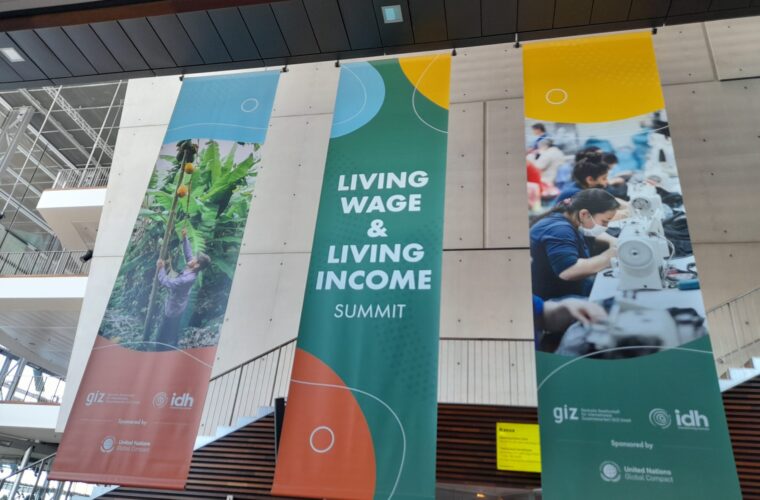
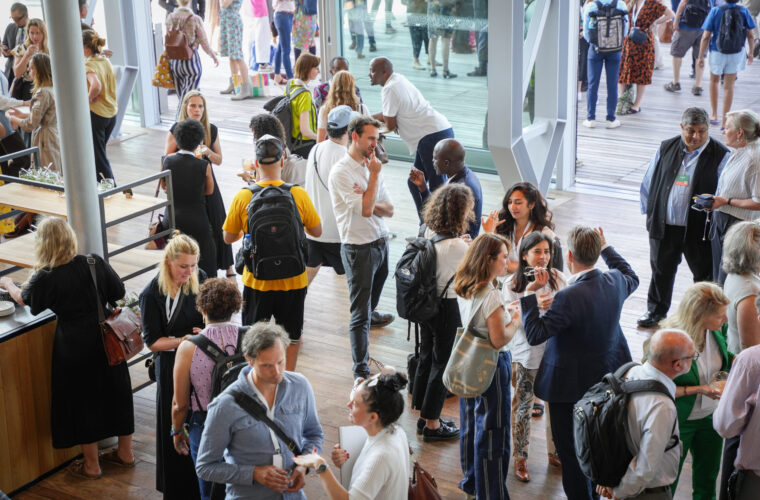
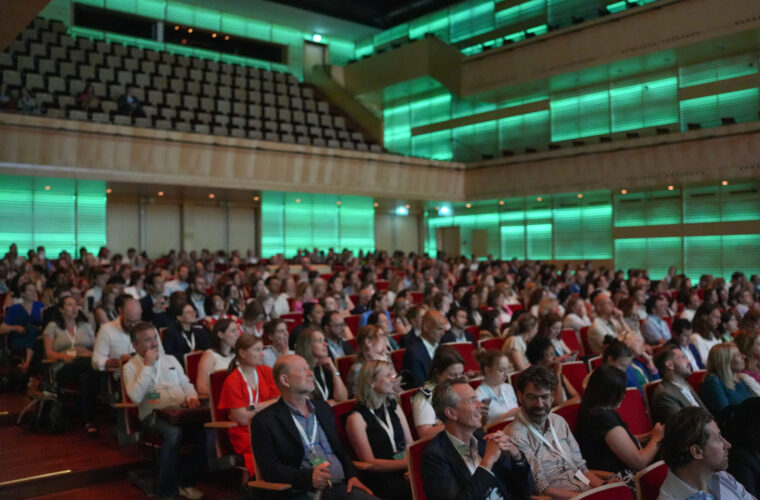
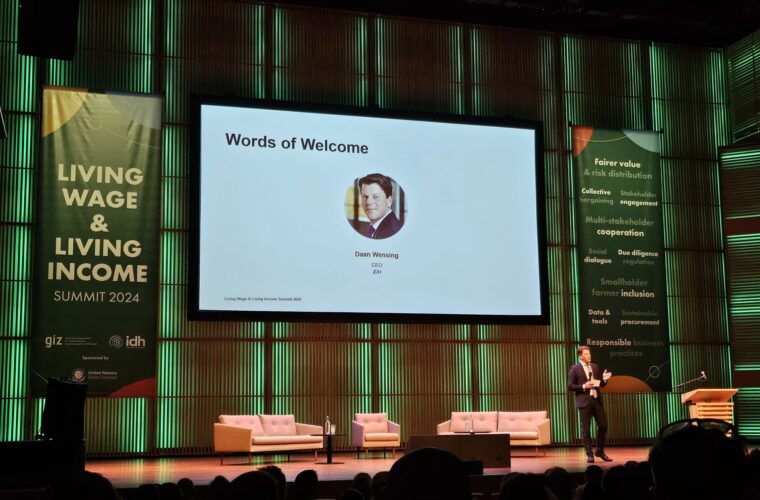
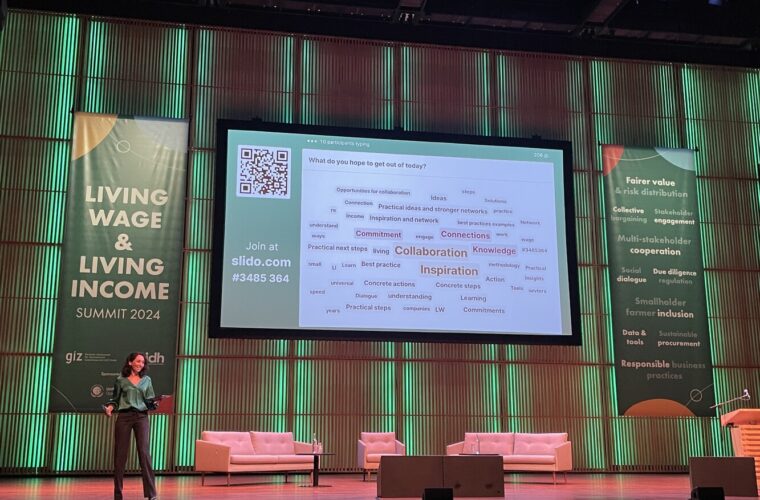


After welcoming words from IDH CEO, Daan Wensing, underlining IDH’s commitment to continue to work on living wage and income with partners, we dived straight into the first polling questions with the moderator of the day, Isabelle Kumar. To the question If you wanted one question to be answered at the end of the Summit, what would it be? the audience didn’t stay quiet. We received more than 130 different questions.
The first panel was spurred into action by Janepher Nassali, Uganda Horticulture, Industrial, Service Providers and Allied Workers Union and Steven Collet, Ministry of Foreign Affairs of the Netherlands who both stressed the importance of leaving no one behind and the need for a supply chain dialogue.
Janepher Nassali shared her personal story and the need for trade union involvement in all aspects of this work. She emphasised the role of national governments in creating quality jobs with a living wage, not just more jobs, and highlighted that the minimum wage in Uganda has not changed since 1984.
Steven Collet reflected how EU legislation will create a level playing field and will have a positive benefit. He stressed the support from the Dutch government on their responsibilities on living wage.
In the fireside chat: Facing reality – where do we stand? data was shared by the World Benchmarking Alliance’s Gerbrand Haverkamp, on corporate accountability for a living wage and living income. Gerbrand stated that less than 4% of 2000 keystone companies identify living income benchmarks or calculate gaps. Also less than 4% create concrete, public steps on living wage for direct employees, with only 3% in their supply chains.
Danone and Unilever spoke about their companies’ action towards living wages and living income. Both Danone and Unilever are signatories to the Forward Faster Initiative, launched by the UN Global Compact. The Forward Faster Initiative calls on business leaders to take measurable, credible and ambitious action in five areas.
International developments
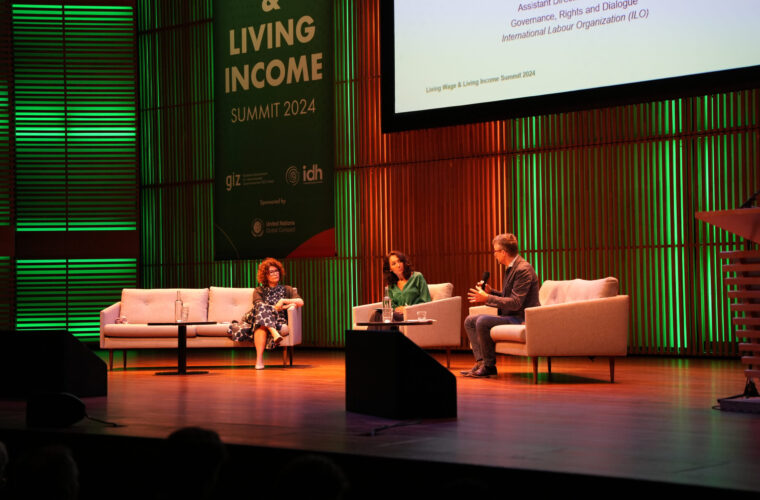
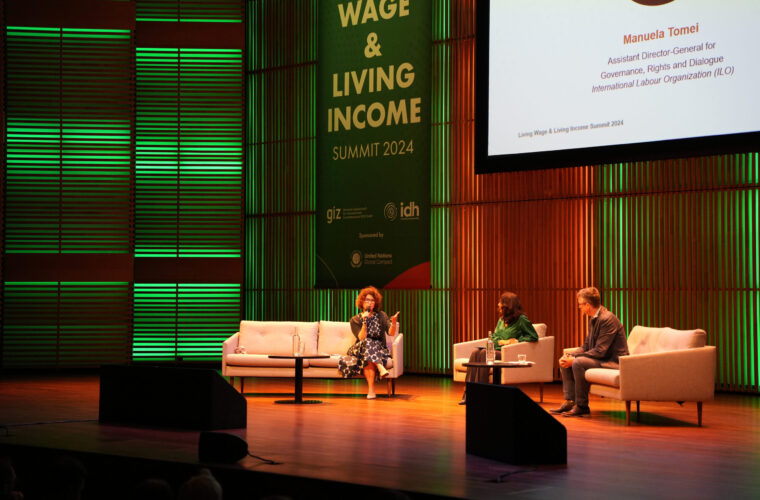
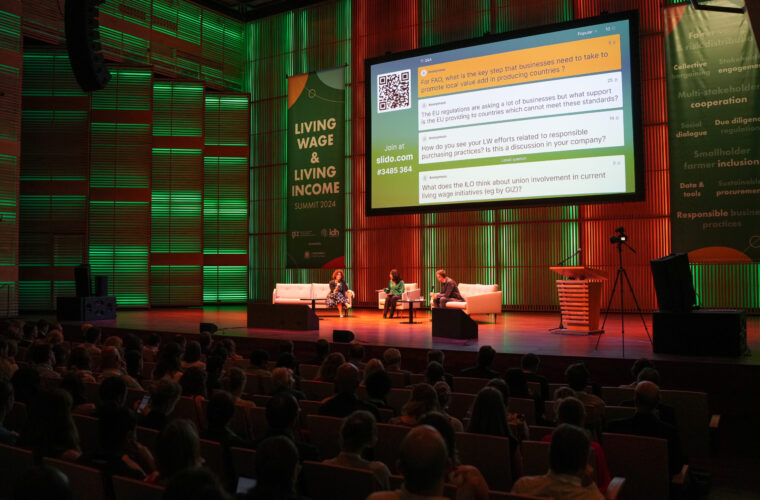
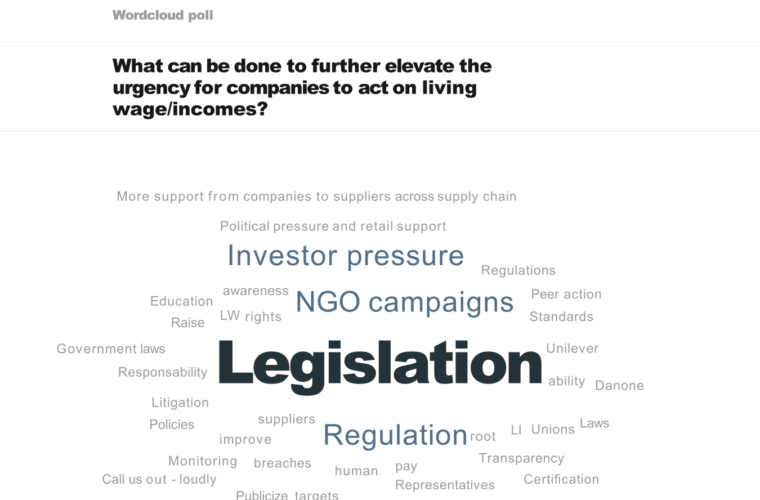
Manuela Tomei, ILO and Andrea Cattaneo, FAO addressed questions about how living wage is about transforming society and economies, about the link between living incomes, poverty and the ability to afford a healthy diet, and about the need for data on how value is distributed throughout the supply chain.
Manuela Tomei highlighted the outcomes of its recently achieved agreement on living wages and that international supply chain approaches on living wages must be properly connected to local collective bargaining and social dialogue processes. She explained that the ILO will continue its work on living wage based on the outcome achieved. Andrea Cattaneo underlined the need to have the right people involved in multistakeholder collaboration.
Multi-stakeholder partnerships & Inspiring actions by companies
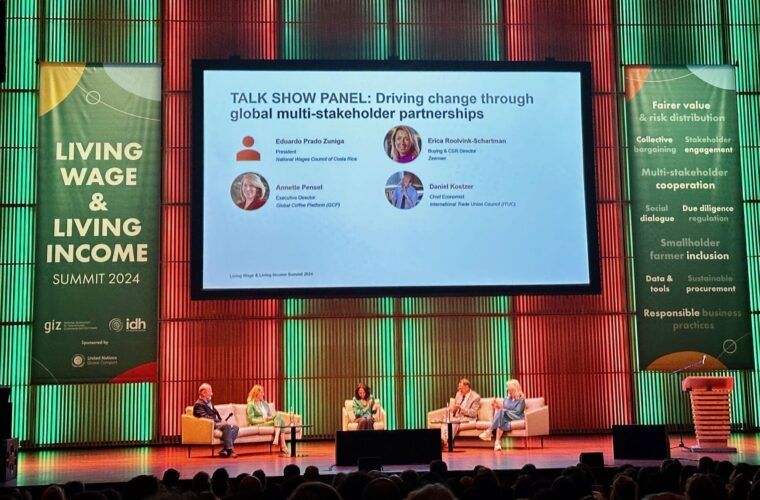
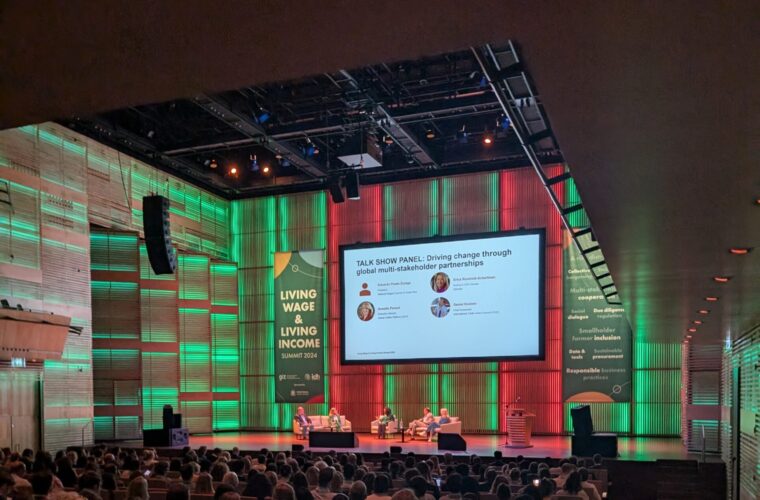

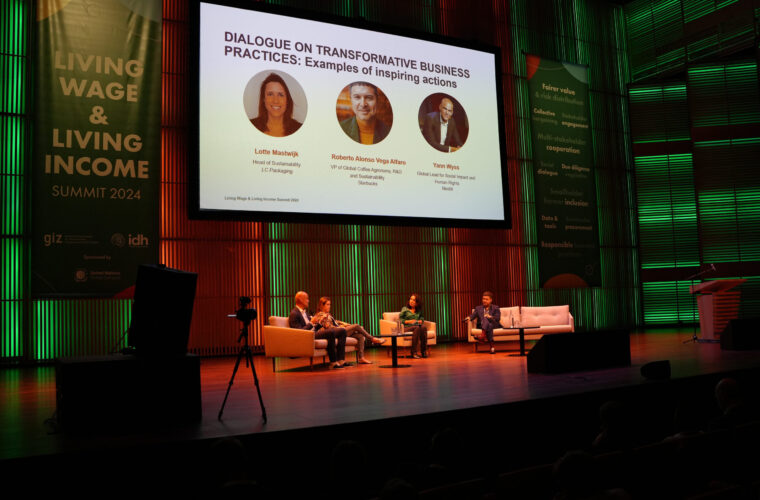
The afternoon moved us into more practical examples of companies taking action on living wage and living income. LC Packaging, Nestlé, Zeeman and Starbucks talked through their different approaches when it comes to living income and living wage. They expressed the importance of starting with partners with whom you have a good relationship and the need to take away their fear, the importance of putting resources into the hands of farmers and the importance of not separating social and environmental issues.
Daniel Kostzer from the International Trade Union Confederation (ITUC) highlighted the importance of defining living wages through a bottom-up approach, involving workers, governments, and employers. He mentioned that localised solutions are key. The president of the National Wages Council of Costa Rica, Eduardo Prado Zuñiga talked us through his experience from being part of an ILO Living Wage pilot programme.
Annette Pensel from the Global Coffee Platform (GCP) explained how their multi-stakeholder international initiative is advancing coffee sustainability. GCP, IDH and Solidaridad recently published research showing that current value distribution makes coffee production economically unviable for most farming families and the planet. Through the report, the organisations invite coffee companies to explore options for alternative value distribution that contributes to higher farmer income.
We heard from Sainsbury’s, their supplier Fyffes, and major producer Uniban about how they work together. They spoke about building trust, making informed decisions in consultation with your supply chain, visiting the production sites to really understand the producer and local context and creating shared understanding of what you are working toward.
Celebrating Milestones and Innovations

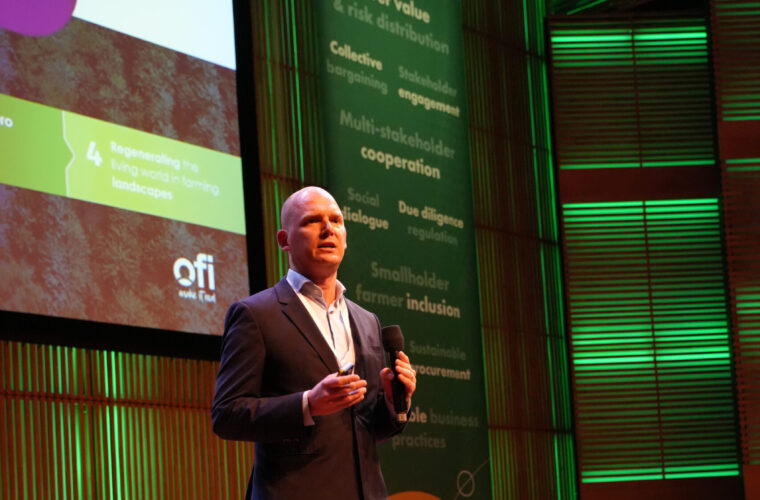
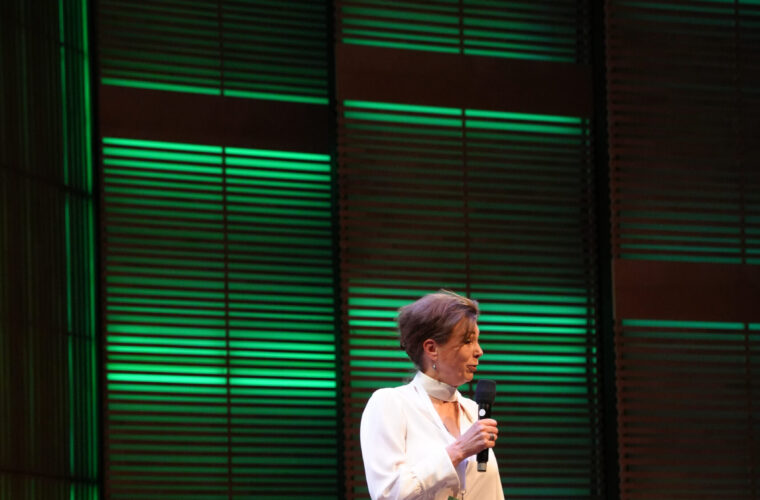
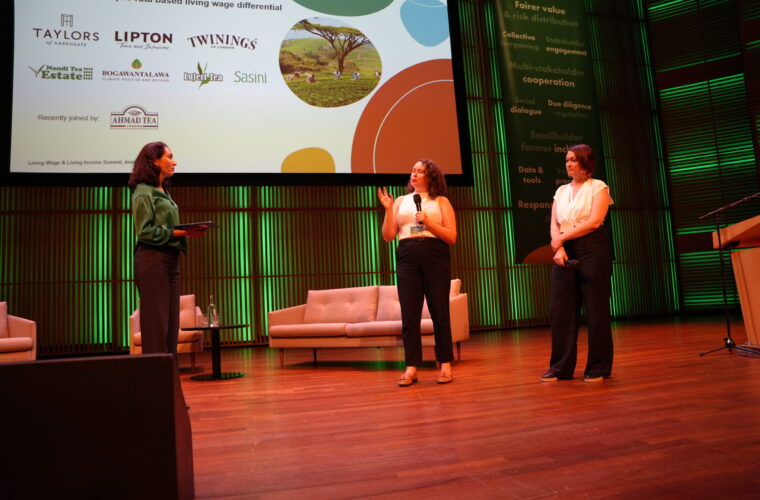
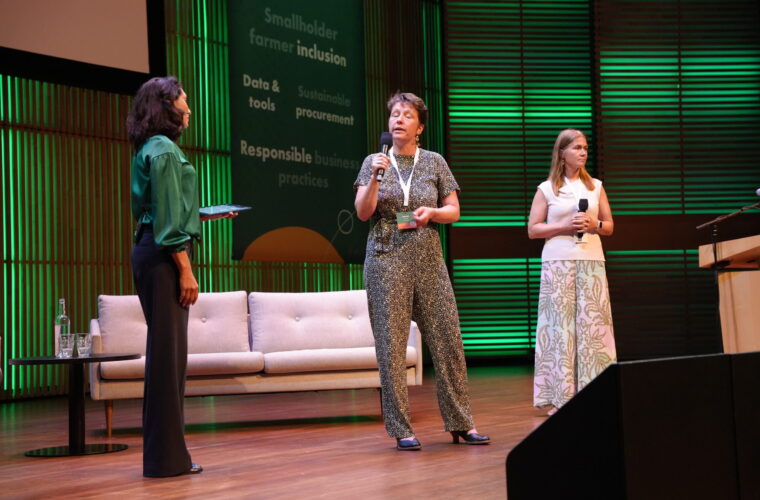
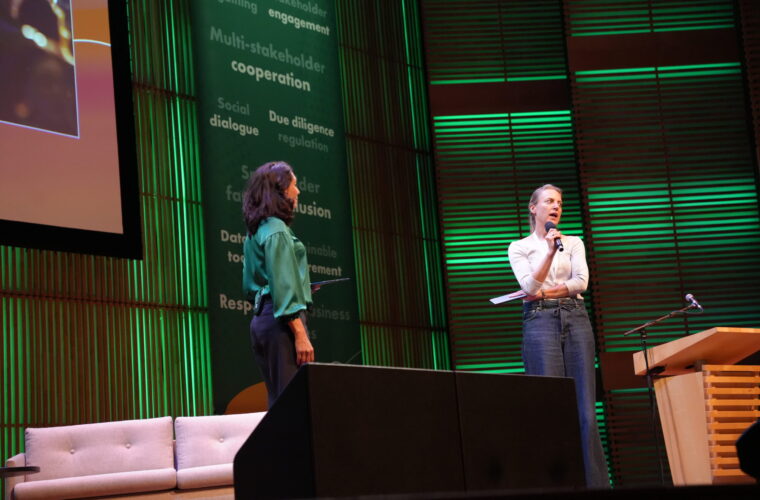
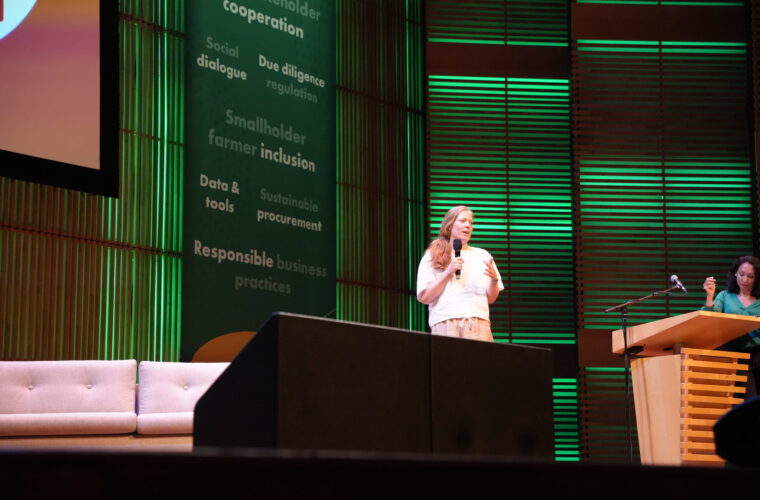
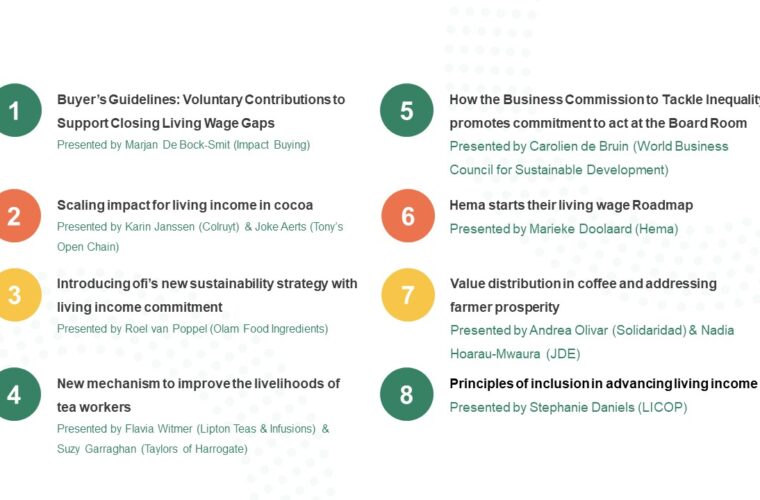
Before we closed the day, we heard from many partners in an inspiring session about their milestones & innovations in living wage and living income. Get informed on the breakthroughs that were shared here.
The Living Income Community of Practice (LICOP), GIZ and IDH shared Principles of inclusion in advancing living income:
1. Champion Essential Role of Farmers in Global Sustainability & Resilience
2. Invest Together in Farmers’ Livelihoods
3. Leverage Legislation to Benefit Smallholder Farmers
4. Commit to Long-term Relationships and Due Diligence Practices
5. Manage and measure Living Income Commitments with Inclusivity
The three organisations ask others to join to action these principles.
Closing & what’s next
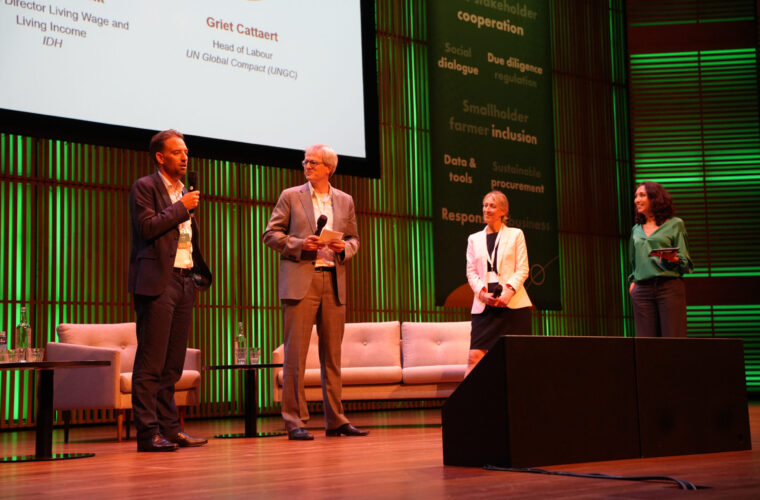
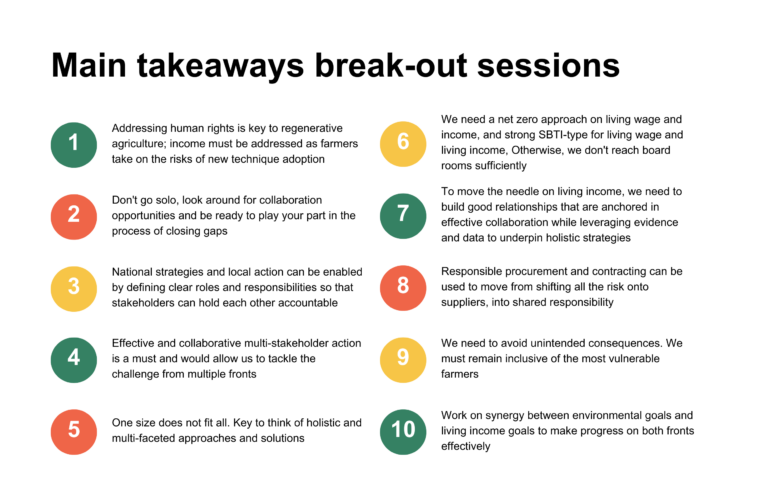
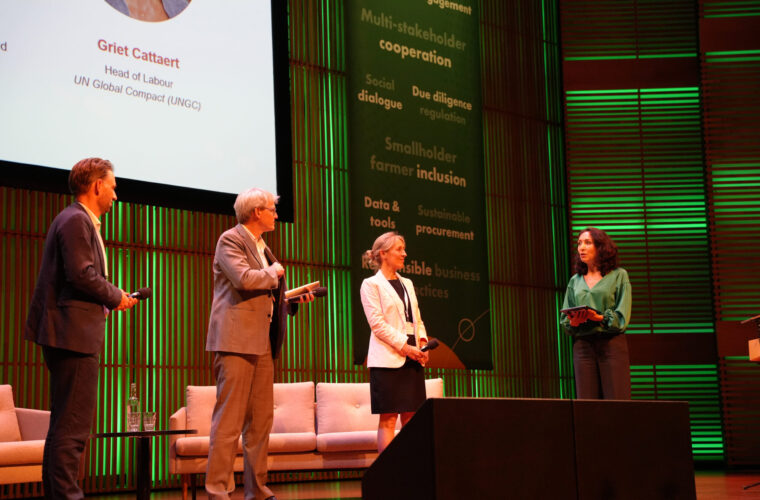
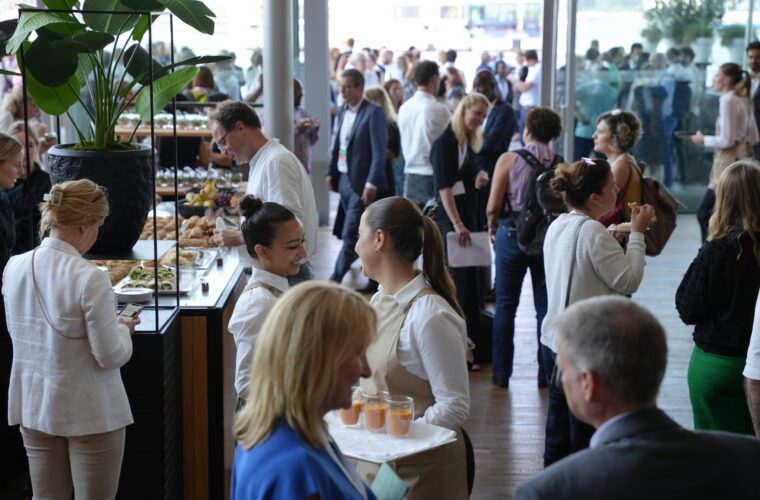

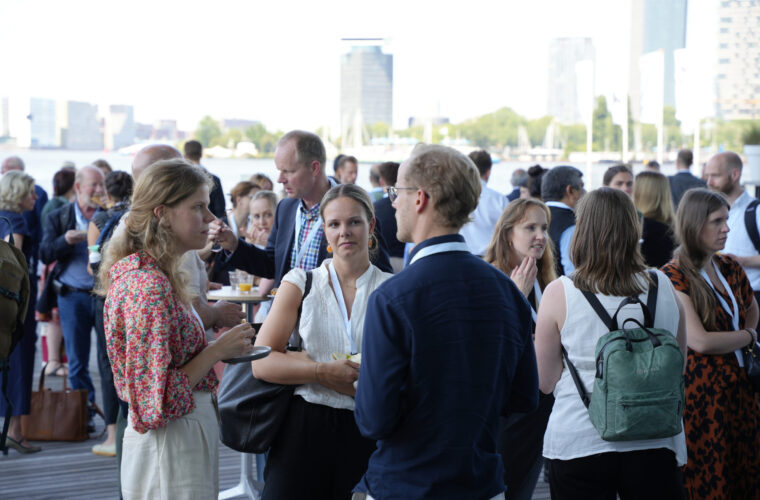


The hosting organisations, GIZ, IDH and the United Global Compact, closed the summit expressing their milestones, main take-aways and asking all participants to progress collective action for living wages and living income.










